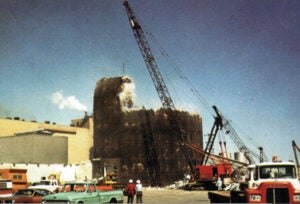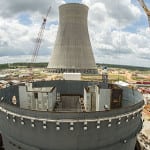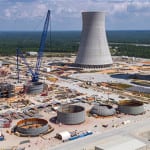On March 27, the U.S. Bankruptcy Court for the Southern District of New York approved Westinghouse Electric Co.’s plan of reorganization.
Westinghouse said the approval is “a significant milestone in the company’s strategic restructuring,” which involves its sale to Brookfield Business Partners L.P.
Brookfield announced on January 4, 2018, that it had entered into an agreement to acquire 100% of Westinghouse for a purchase price of approximately $4.6 billion. It expected to fund the acquisition with $1 billion of equity, $3 billion of long-term debt financing, and the balance by the assumption of certain pension, environmental, and other operating obligations.
“Confirmation of our plan of reorganization is one of the final steps in the completion of our strategic restructuring,” said José Emeterio Gutiérrez, president and CEO of Westinghouse. “Our customers, employees, suppliers, vendors, and other important constituencies overwhelmingly supported our plan of reorganization. We are on track to fulfil our promise to emerge from this strategic restructuring process as a stronger business partner while retaining our primary focus on safety.”
U.S. Nuclear Projects at Heart of Trouble
Westinghouse is a leading supplier of infrastructure services to nuclear power generating facilities around the world. The company provides engineering, maintenance, facilities management, and repair services to its global customers. But Westinghouse was forced to file for Chapter 11 bankruptcy as a result of financial challenges encountered while constructing two dual-unit AP1000 nuclear power plant projects in the U.S.
The projects—Plant Vogtle Units 3 and 4 in Georgia and V.C. Summer Units 2 and 3 in South Carolina—were plagued by delays and cost overruns. The projects began in 2009 with a Westinghouse-Shaw consortium contracted to build the units. CB&I got involved when it acquired The Shaw Group in February 2013. Delays and cost escalation continued, however, and in December 2015, CB&I sold its nuclear construction and integrated services businesses—CB&I Stone & Webster Inc. (S&W)—to Westinghouse.
The acquisition made Westinghouse the sole contractor over both of the projects. It brought in Fluor to provide project execution and direction. About a year later, Toshiba Corp. (Westinghouse’s parent company) announced that it would book huge losses as a result of the CB&I deal. Toshiba said it had estimated goodwill—a term used to identify intangible assets for which a premium is paid as part of a transaction—to be about $87 million when it agreed to the purchase, but it later calculated the goodwill booking would be several billions of dollars. The company also found that the cost to complete the U.S. AP1000 projects would far surpass original estimates, meaning that S&W’s asset values were much less than originally believed.
Following the Westinghouse bankruptcy filing, V.C. Summer was abandoned by project owners SCANA Corp. and Santee Cooper, citing high costs. Southern Co. took control of project management duties for the Vogtle expansion and kept that project going. It dumped Fluor and brought in Bechtel to manage daily construction efforts. Earlier this month, Georgia Power said safety and productivity have improved since the changes were made. The current schedule sets a November 2021 in-service date for Unit 3 with a November 2022 target for Unit 4.
Westinghouse Still a Good Buy?
Regardless of its past troubles, Brookfield still considers Westinghouse a solid company. Brookfield cited Westinghouse’s strong market position; global, diversified customer base; attractive revenue and cash flow profile; and strong reputation driven by a focus on innovation as reasons to be optimistic.
“Westinghouse is a high-quality business that has established itself as a leader in its field, with a long-term customer base and a reputation for innovation,” Brookfield CEO Cyrus Madon said in a press release announcing the deal to acquire Westinghouse. “We look forward to bringing our significant expertise and reputation as a long-term owner and operator of critical infrastructure in the U.S. and globally, as well as our deep facilities management capabilities, to enhance the Company’s position as a leading global infrastructure services provider to the power generation industry.”
The sale is expected to close in the third quarter of 2018, subject to customary closing conditions including, among others, regulatory approvals.
—Aaron Larson, executive editor (@AaronL_Power, @POWERmagazine)









